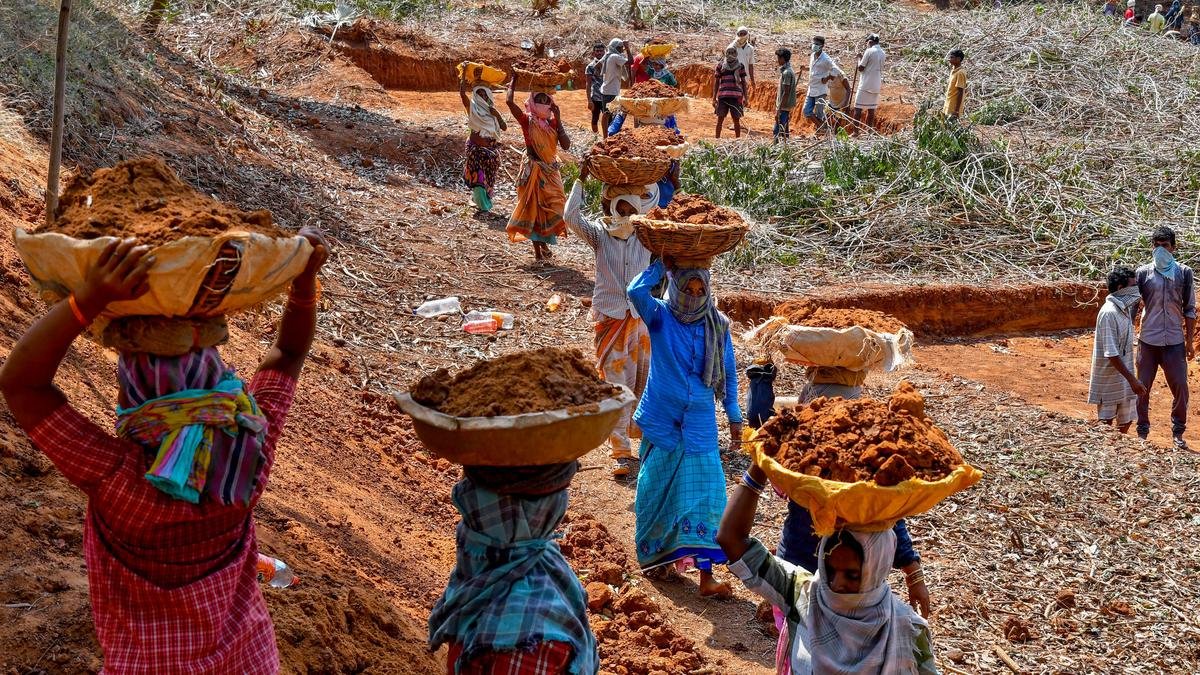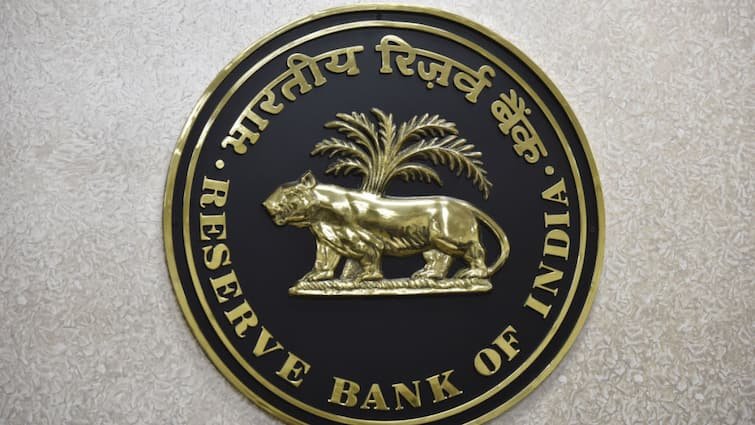From being called a “living monument of failure” to “digging holes,” the Mahatma Gandhi National Rural Employment Guarantee Scheme (MGNREGS) has long been subject to harsh criticism by the ruling dispensation. While the NDA government hasn’t done away with the UPA’s legacy scheme, payment delays, technological imposition and paucity of funds have left the programme in a state of disrepair.
For instance, the Centre is yet to clear wages worth thousands of crores in West Bengal and Rajasthan. The recently introduced Aadhaar-based payment system (ABPS) will impact close to 80% of workers in Maharashtra who are yet to complete the relevant formalities. Also, the Budget allocated to the scheme was slashed by 33% for FY24.
Despite the steep cut, Union Rural Development Minister Giriraj Singh recently claimed that the allocations were higher than what was given during the UPA regime. Chart 1 shows that the allocation formed only 1.3% of the total budget in FY24, the lowest-ever. The share peaked at 3.4% in FY09.
Chart appears incomplete? Click to remove AMP mode
From February 1, 2023, payments to MGNREGS beneficiaries were to be made only through ABPS. However, as on February 20, only 44% of the total workers in India were eligible for ABPS. In 14 States, more than 50% of workers were not eligible. In Rajasthan, Uttar Pradesh, Bihar and Maharashtra, where more than 2 crore workers each are enrolled under the scheme, over 60% were not eligible. Chart 2 shows the State-wise share of workers who were not eligible for receiving payments through ABPS as on February 20. States have been divided into four categories based on the number of workers enrolled in MGNREGS.
Rajendran Narayanan, a faculty member at Azim Premji University, said, “Till the workers link their job cards and bank accounts with Aadhaar, they will not be allowed to take up MGNREGA work. That can have serious consequences because it takes time to do this process and this is the peak season of MGNREGA. Also, rectifying errors in the Aadhaar-based payments is nearly impossible for the workers and field officials.”
MGNREGS also suffers from inordinate delays in payment of wages. The payment process has two stages. Stage 1, which is the States’ responsibility, involves creating a Funds Transfer Order with worker details. This is sent in digital format to the Centre. Stage 2, which is the Centre’s responsibility, involves processing the Funds Transfer Orders and transferring the wages to the worker’s account. Chart 3 shows the wages (in Rs. crore) that were not yet processed by the States and the wages that were yet to be cleared by the Centre as on February 25. For instance, in Rajasthan, nearly Rs. 78 crore or 1.5% of total transactions is yet to be processed at the State level, while the Centre is yet to clear dues worth Rs. 1,138 crore or 18% of all transactions. In West Bengal, close to 98% of transactions worth Rs. 2,897 crore are pending with the Centre.
Further, several States such as West Bengal, Madhya Pradesh, Tamil Nadu, Andhra Pradesh, Maharashtra and Nagaland are running negative balances with payments pending for wages and material. This makes it difficult for them to take up new work. At the same time, they have pending payments ranging from Rs. 200 crore to over Rs. 1,000 crore. In Gujarat, Telangana, Bihar, Rajasthan and Uttar Pradesh, while the existing balance is positive, the pending payments far exceed the balance, which if cleared, will push the States into negative territory. Chart 4 shows balance remaining with States and payments that are due in Rs. crore.
Source: MIS reports, budget documents and the Ministry of Rural Development
nihalani.j@thehindu.co.in
Also read | The demand for MGNREGS work is unmet
Listen to the Data Point podcast: What decides women’s marital age — wealth, education or caste | Data Point podcast







